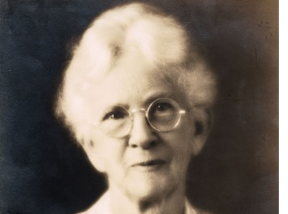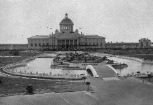
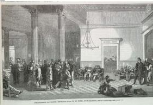
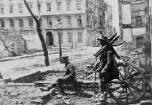
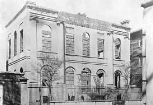
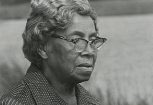
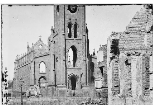
DECEMBER
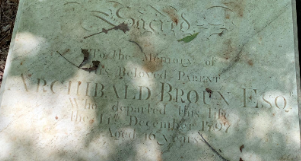
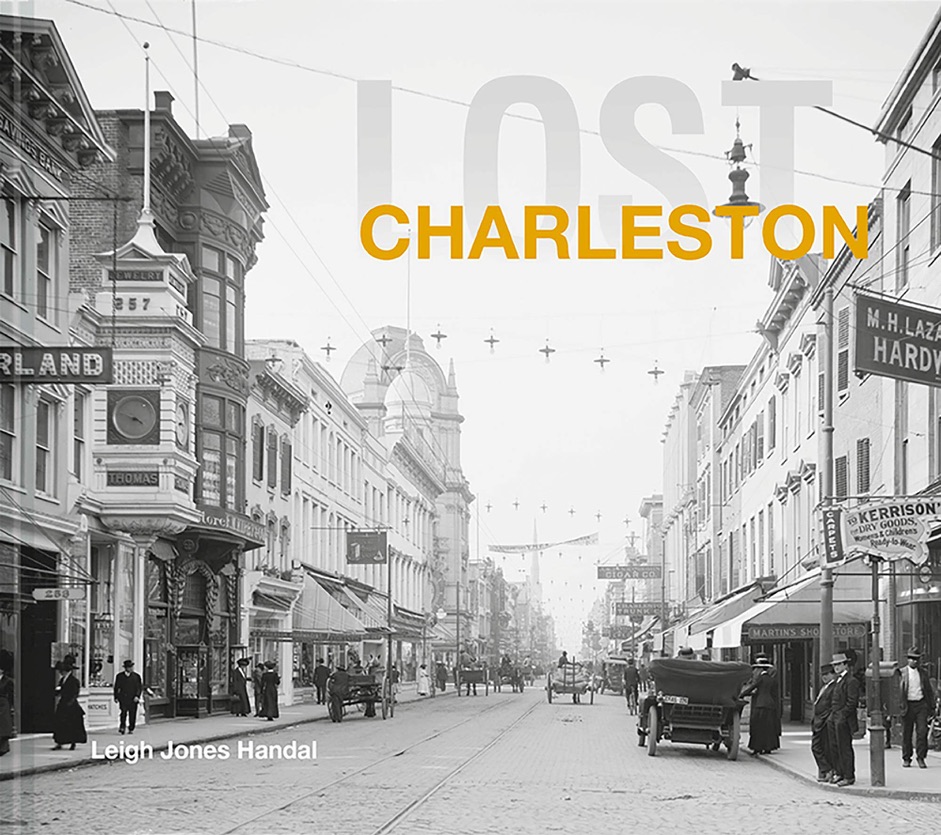
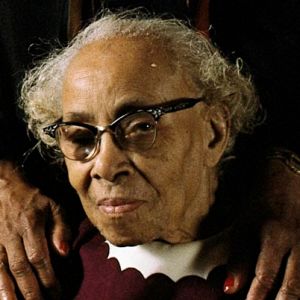
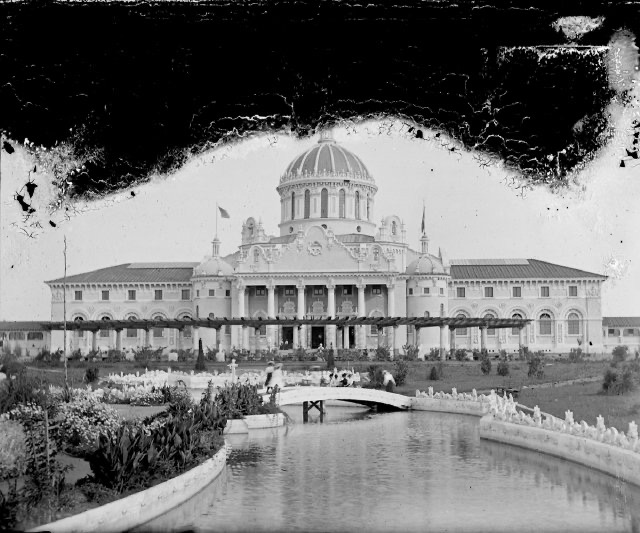
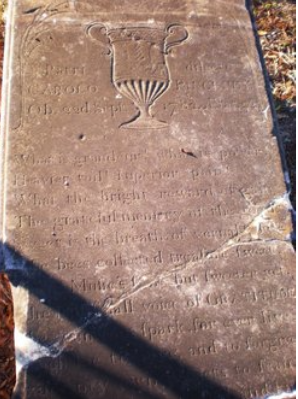
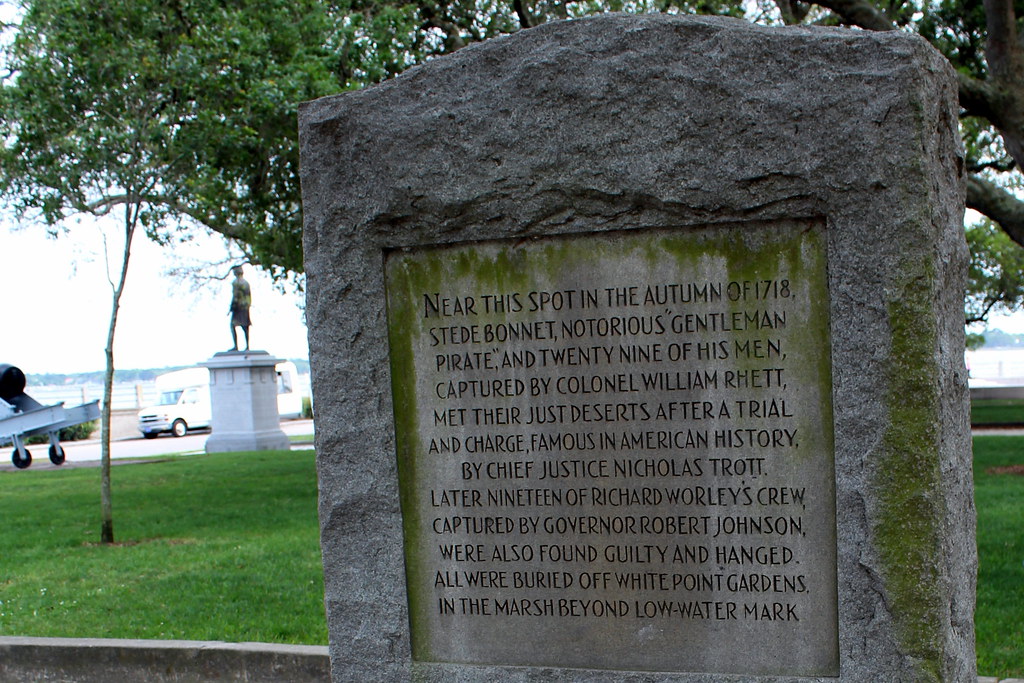

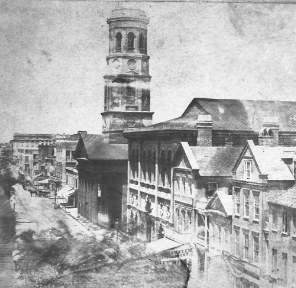
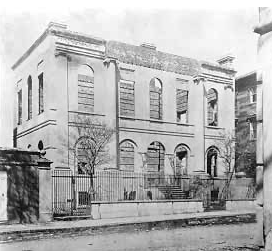
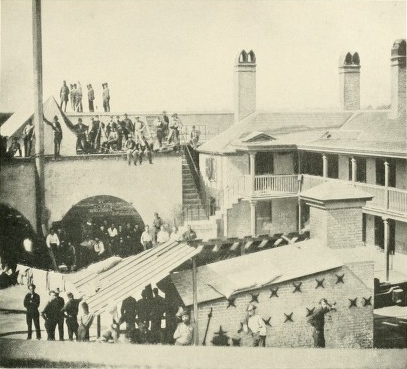
December 1
1901 -- The South Carolina Inter-state and West Indian Exposition opened on what had formerly been the grounds of the Washington Race Course (afterwards Hampton Park) amid great fanfare.
1958 -- I was born in Florence, S.C.
December 2
1773 -- The English ship London dropped anchor in Charles Town Harbor with 257 chests of tea. As the tension of the impending revolution filled the air, it was clear that if the colonists allowed the cargo to be delivered with its three-pence-per-pound duty collected as authorized by Parliament, it would be an admission that the colony was answerable to the governing body of England so far away. Christopher Gadsden was incensed. He and his friends posted handbills all over town calling for a meeting the next day at the Old Exchange Building to discuss what should be done. (Source: Charleston, Charleston! by Walter Fraser, p. 136)
December 3
1737 -- An indentured white servant, Samuel Dyssli, wrote home to his family saying "I am over here, thank God, hale and hearty, and doing at present quite nicely. I am working with an English master. He gives me every week ... 50 shillings, and ... plentiful ... food and drink."
1766 -- S.C. Commissary General William Pinckney, husband of Ruth Brewton, father of Col. Charles Pinckney, and grandfather of Charles Pinckney, an architect of the U.S. Constitution, died.
1792 -- In his will, John Coming Ball of Back River made specific directives about the disposition of several of his enslaved people: "I give my Negro man Nat his freedom and all my wearing apparel. I give my Negro woman, Hagar, and her child Charlotte their freedom and, desire my executors will have the latter educated & when she shall be old enough placed out as an Apprentice to a Millinor or Mantua Maker. I give my Negro Man, Jackey (son of Lucy) who is at present my driver his freedom, I give and bequeath to my sister, Mrs. Wilson, any Negro Girl among my female Slaves she may prefer ...." (Source: Goose Creek: A Definitive History Vol. I, p. 91)
December 8
1769 -- The S.C. General Assembly voted to send 1,500 pounds Sterling to John Wilkes, a member of England's Parliament who had been arrested and imprisoned for criticizing the King. As Patriotic tensions here grew, they felt a kinship with Wilkes's cause. Unfortunately, the King's counselors saw the gift as a slap in the face to their sovereign, which did nothing to mellow the rebellous tensions that were brewing. (Source: Charleston, Charleston!, p. 126.)
1860 -- A South Carolina state delegation met with U.S. President James Buchanan, making him aware of the probability of the state soon seceding from the Union and hoping to negotiate a non-voilent transfer of properties owned by the federal government.
December 10
1698 -- Affra Harleston Coming deeds 17 acres of land south of George Street to St. Philips Church. It is known as the Glebe Lands, or lands belonging to the church.
1718 -- Stede Bonnet was hanged for piracy at White Point Gardens.
1860 -- A South Carolina state delegation again met with U.S. President James Buchanan, making him aware of the probability of the state soon seceding from the Union and hoping to negotiate a non-voilent transfer of properties owned by the federal government.
December 11
1723 -- The Rev. Thomas Morritt, who had been sent from England by the Society for the Propagation of the Gospel in Foreign Parts, wrote to his superior that he had recently proposed erecting a colllege before the colony's Assembly. (Source: A History of the College of Charleston, p. 2)
1797 -- After suffering for 18 years from an accidental bayonette wound he received at the Siege of Savannah, Patriot Capt. Archibald Broun (aka Brown) died at Blessing Plantation. During his distinguished career, he negotiated with the French for miltary supplies and equipment, and became one of the five wealthiest land owners in St. Thomas Parish (near today's Goose Creek area).
1861 -- The largest, most destructive fire in the history of Charleston began near Hasell and East Bay streets, swept west to Meeting Street, down to Broad Street, and all the way over to the Ashley River side of the peninsula, burning more than 540 acres, 575 homes, many businesses and five churches, including the Pinckney Mansion, S.C. Institute Hall, Circular Congregational Church, St. Andrew's Hall, and the Cathedral of St. John and St. Finbar. Property damage was estimated to be between $5 million and $8 million.
December 12
2019 -- The results of a study published in the journal Current Biology presented new genetic evidence blaming the blame for the extinction of the Carolina parakeet squarely on human interference.
December 13
1770 -- Charlestonians enacted a local boycott against the importation of British goods (with the exceptions of tea and luxury items) as a result of the repeal of the Townshend Act. (Source: Walter Charleston. Charleston!, p. 127.)
1897 -- The first documented, local large-scale party featuring roasted oysters was sponsored by the Grand Lodge of Ancient Masons on Remley’s Point.
December 15
1730 -- Robert Johnson arrives as Charles Town's new Royal Governor.
1987 -- Septima Poinsette Clark died.
December 17
1679 -- French Huguenot Abraham Fleury Sieur de la Plaine and his family left England aboard the Richmond on their way to seek a new life offering freedom of worship in the Charles Town colony. (Source: The Goose Creek Bridge: Gateway to Sacred Places, p. 33.)
That same day, the colony's Grand Council decided that their sesttlement, which was located about 10 miles up the Ashley River at what is today Charles Towne Landing State Park, should be moved to what is today the peninsula city, saying "we let you know that Oyster Point is the place we do appoint for the port town of which you are to take notice and call it Charles Town." (Source: A Short History of Charleston)
1761 -- Early Patriot leader Christopher Gadsden wrote an editorial in the Gazette accussing Lt. Col. James Grant, a Scottish officer in the British Army, of not having been aggressive enough in his attacks on the Cherokees, claiming he did not permit his men "to cut the throats of as many as they could have." In Charleston! Charleston!, author Walter J. Fraser Jr. suggests the criticism may have been fueled, at least in part, by "personal jealousies increasingly common in relations between British regular officers and provincial officers" (p. 95).
1765 -- Amid rumors of a possible slave rebellion, Acting Governor William Bull called an emergency Council meeting. A hundred militia men were deployed to patrol the city and the captains of ships moored in the harbor had their sailors stand sentinel at night. The holidays passed peacefully, though the patrols continued both day and night through early January (Charleston! Charleston!, p. 113).
1860 -- Some 160 state delegates gather in Columbia to determine the secession question. The session is interrupted, however by an outbreak of smallpox. The delegates reconvene three days later in Charleston.
December 18
1743 -- Royal Governor James Glen arrived in Charles Town aboard the Tarter, afterward describing the colony as being "... in Ashes, Defenseless, Declining."
December 20
1860 -- South Carolina delegates vote unanimously for seccession at St. Andrew's Hall on Broad Street. The document was drawn up and signed later that evening before a cheering crowd at S.C. Institute Hall on Meeting Street.
1874 -- The New Wappetaw Presbyterian Church was dedicated in McClellanville, at ceremonies presided over by the Rev. Drs. John Girardeau and Gilbret Brackett, representing the Charleston Prebytery. The church is still in use today. (Source: Home in the Village, p. 125)
December 21
1719 -- The Assembly proclaimed Gen. James Moore Jr., who had led a successful attack on the Tuscarora tribe during the Yemassee War, as provisional governor until they received further directives from the Crown.
December 25
1947 -- Henry Dees III was born in Charleston. After two years at The Citadel (Dees Hall was named after his father), Dees completed a degree in acting from the North Carolina School of the Arts. He began his career in New York as a stage actor before moving to Los Angeles to star in the film "Two-Minute Warning," and soon thereafter he earned guest spots on the television show "Wonder Woman." He continued acting until 1991 when he went into advertising sales for Moving Pictures International and Variety Magazine.
1989 -- Eight inches of snow fell, providing Charleston with its first - and to date only - documented White Christmas.
December 26
1860 -- Feeling he could secure his position at Fort Moultrie on Sullivan's Island, Major Robert Anderson evaucated his Federal troops to Fort Sumter under cover of darkness.
1950 -- Maria Louisa Porcher Wayne died.
December 27
1860 -- S.C. Gov. Francis Pickens mobilized local militia including the Washington Light Infantry, Palmetto Guard, Cadet Riflemen, and others who, over the next several days, seized the Customs House, Arsenal, forts Moultrie and Johnson, and other government properties. In what some say to have been the "real" start of the Civil War, the militia ousted a small group of civilian laborers and two Union officers from Castle Pinckney that day, making it the first Federal military installation to seized by the Republic of South Carolina.
Robert Gourdin, a prominent Charleston merchant, wrote a letter to his old friend Major Robert Anderson, who had evacuated his Federal troops from Sullivan's Island to Fort Sumter the previous day, expressing his profound sorrow over the major's decision to evacuate and protesting that the garrison had been in no danger at Fort Moultrie.
Major Robert Anderson notified U.S. Secretary of War J.B. Floyd that he had “abandoned Fort Moultrie because I was certain that if attacked my men must have been sacrificed, and the command of the harbor lost. I spiked the guns and destroyed the carriages to keep the guns from being used against us.” He said he had enough food, medicine, and military supplies for about four months. Despite their earlier orders to Anderson to hold whichever fort the major deemed safest, Buchanan and Floyd seemed surprised by news of the evacuation and called an emeregency cabinet meeting.
December 28
1698 -- Affra Harleston Coming divided her estate between her nephew, John Harleston, and her husband's half-nephew, Elias Ball.
1722 -- Eliza Lucas was born into a wealthy and privileged English family on Antiqua.
1748 -- The Charles Town Library Society began raising money for the establishment of an academy, an educational initiative that eventually resulted in the College of Charleston. (Source: A History of the College of Charleston, p. 5)
1860 -- U.S. President James Buchanan wrote using courteous, but firm language that he considered the seizures of the city's forts an act of hostility. The United States, he proclaimed, would hold Fort Sumter by all means possible.
S.C. Gov. Francis Pickens announced he would not allow any U.S. ship to enter Charleston Harbor. He ordered both the militia at Fort Moultrie and a small unit of Citadel cadets whom he had sent to Morris Island to enforce that order.
December 29
1778 -- The city of Savannah fell to British Gen. Sir Henry Clinton, who set his sights on marching to Charles Town.
1860 -- U.S. Major Robert Anderson wrote to his friend, Charlestonian Robert N. Gourdin, saying "I have supplies of provisions, of all kinds, to last my command about five months, but it would add to our comfort to be enabled to make purchase of fresh meat and so on, and to shop in the city."
1899 -- The South Carolina Jockey Club disbanded and donated its property, the former Washington Race Course, to the South Carolina Library Society.
December 30
1860 -- Ten days after South Carolina seceded from the Union, the state militia seized the United States Arsenal in Charleston.
December 31
1781 -- Henry Laurens was released from the Tower of London in exchange for the release of Lord Cornwallis by the Americans.
1782 -- The last of the British Army evacuated the city from Gadsden Wharf. At 11 a.m. Gen. Nathanael Green took possession of Charles Town.
1851 - Jenny Lofton was born in Christ Church Parish.
1860 -- U.S. President James Buchanan decided to send reinforcements to Maj. Robert Anderson, something he had been considering since early fall.

